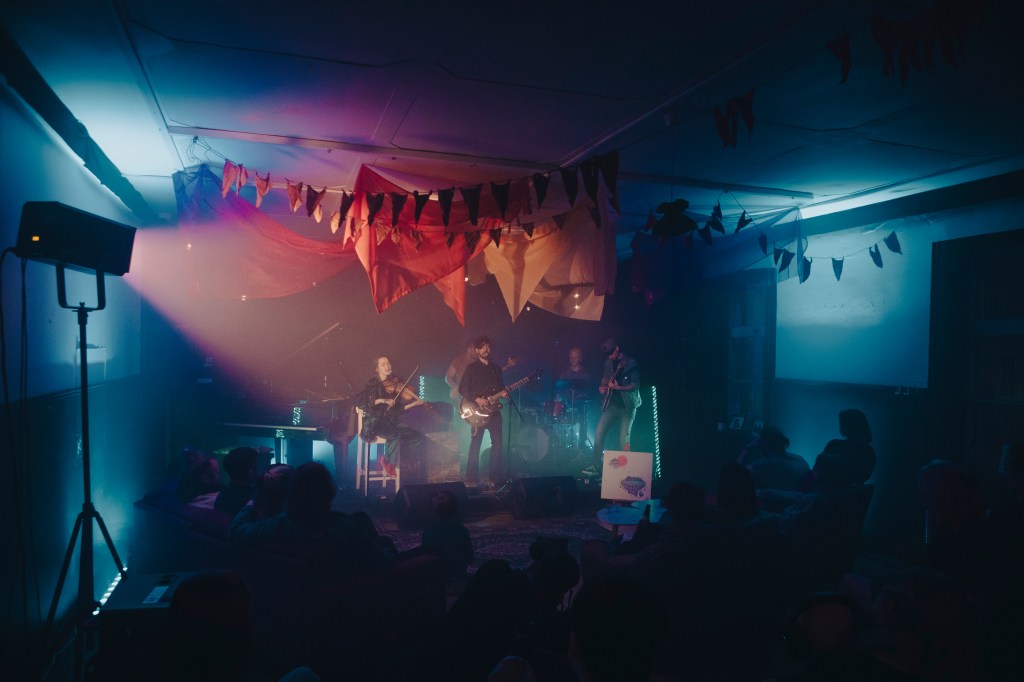I AM JUST LIKE YOU. I’ve been watching Zelenskiy on TV every night on my couch. Not wartime Zelenskiy — I get my updates from wartime Zelenskiy on my phone — but peacetime Zelenskiy, when he starred in Servant of the People from 2015 to 2019. It’s almost painful to watch the opening credits, where he cycles to the presidential administration building through a clean-looking, sunlit Kyiv, winking at pedestrians, being watched by old couples, past leafy parks and old stone monuments. This was the Ukraine that still existed just a few months ago, I suppose, the freewheeling, post-Euromaidan Ukraine, the Ukraine where a comedian was elected president. That Ukraine, before the missiles, the deportations. Now it all seems like a lost world.
When the war came, I was gripped not only by panic, but by a crisis of conscience, or a collapsing sense of self. The American writer Scott Fitzgerald’s first book, This Side of Paradise, published in 1920, described the development of his self-modeled protagonist from what he called an “egoist” to a “personage.” We have a core self, the self we have always been, and then a second self, a personage, or persona, a self we have created, one that is not necessarily an illusion, but the face we show to the world. Zelenskiy’s character in Servant of the People was very much his “second self,” just as my identity as a writer is my own. It’s a jacket I can wear all day and take off at night. Just as I put my feet on the couch and watch Zelenskiy and try to forget about the war, he once came home from the studio, kissed his wife and did the same things. Comedy, entertainment. It was just a job, but it wasn’t necessarily who he was.
Then when the war started something happened. I could no longer write. I searched for inspiration, words, but nothing came. Fiction? Columns? Articles? This wistful quasi-romantic bric-a-brac I have been serving up for years, like baked potatoes? Nothing materialized. I missed deadlines. I went missing in action. My editors pestered me, badgered me, waited for me, anxiously, and I had no idea what to say. I blamed it on the war, of course, because I could not write because nothing I could write could measure up to the terrors of this world. What need was there for writing anymore? What need was there for comedy? What need was there for fiction? What need? Within a few weeks, I had lost all desire to be whoever I thought I was. It had disturbed everything.
These sound like first-world problems, I know, but writing seems to be my sole surviving talent. If I cannot write, I cannot work. If I cannot work, I will not get paid and I will run out of money. If I have no money, I can’t support my family and we won’t eat, or I will have to borrow money and steal firewood from the neighbor. So whatever was happening out there, I had to pull myself together and push through the storm. Even if my core self was struggling, my second self, this writer character I had long ago devised, he had to see things through. That person had to keep writing, even if I didn’t feel like it.
I think a lot of other people have had to go through this process. In a war, it seems that all is needed are more soldiers, tanks, missiles, planes, better messaging. There is no need for books, no need for fiction, indeed, no need for comedy or TV shows. There is no need for anything, if you think about it. No need for concerts. No need for yoga classes. No need for finely prepared meals. No need for a walk in the park. Nothing, but to keep breathing, is necessary in a war. Yet if we cannot live our lives, then what exactly are we fighting to protect? Exactly that, our right to live our own lives, to write, to make jokes. To continue on without the dark threat of war.
This is the mindset I have adopted to keep myself in some kind of balance: that no matter what happens, life must go on. Even if they put me in a deportation camp, I shall steal a pen from a guard, and write my book on the back of a political poster. For I am a writer, and that is what I must do. For Volodymyr Zelenskiy, I believe it is the same. Right now, he is being the president, just as he once was a comedian. He is a father and a husband, too, and I hope that someday he will know a day without fear and frustration. One day Zelenskiy’s country will be rebuilt, and for a few moments his family will sit in a Kyiv park and forget it. Just a few moments. I don’t think any of us will forget about it, but for a few moments we can not think about it, I think. That is my hope.

